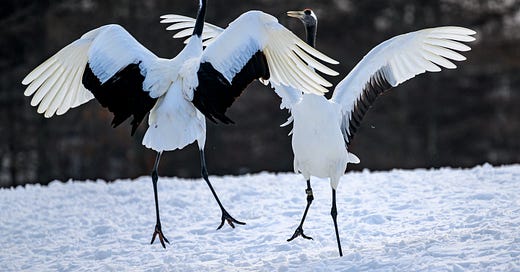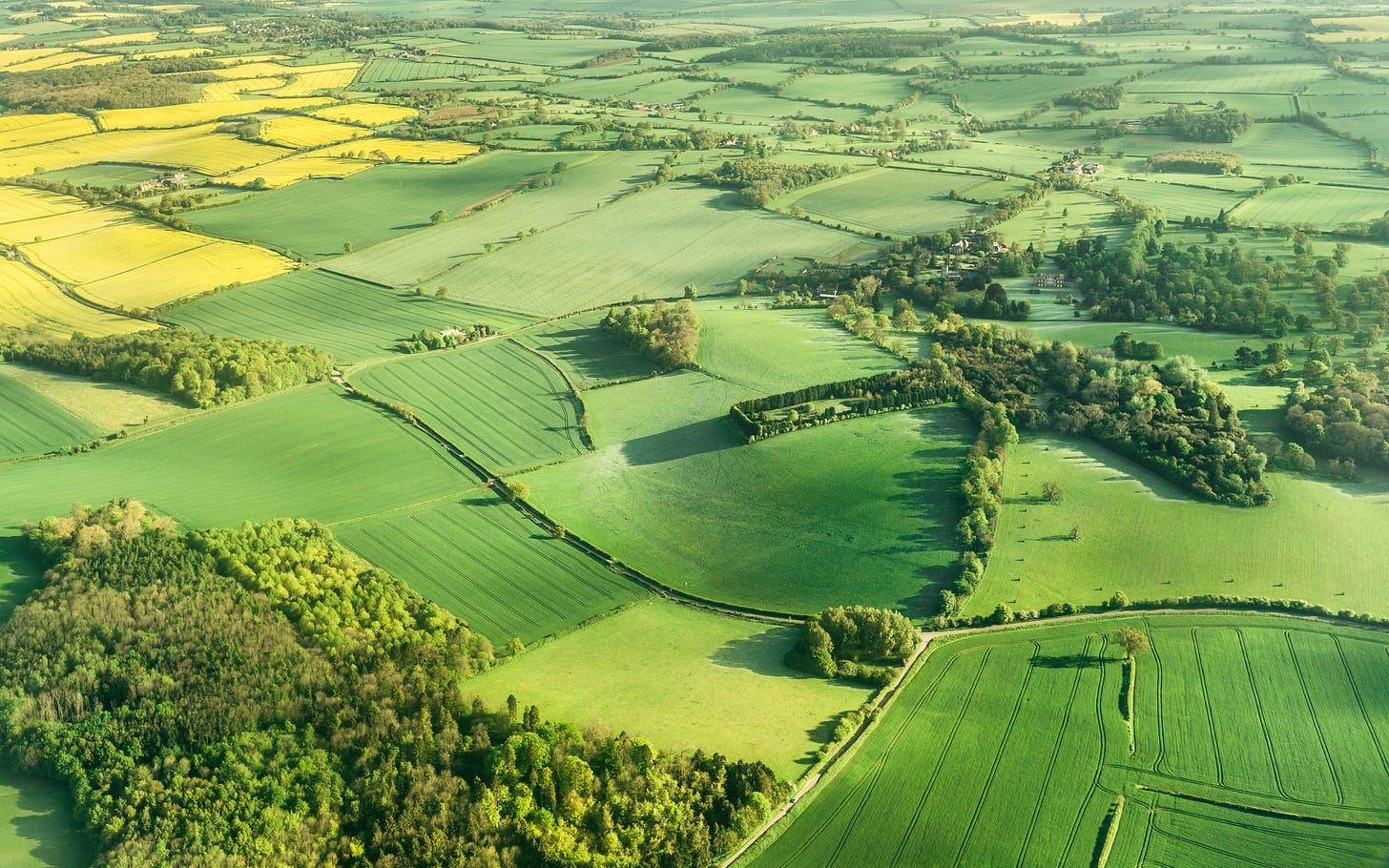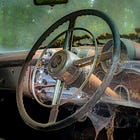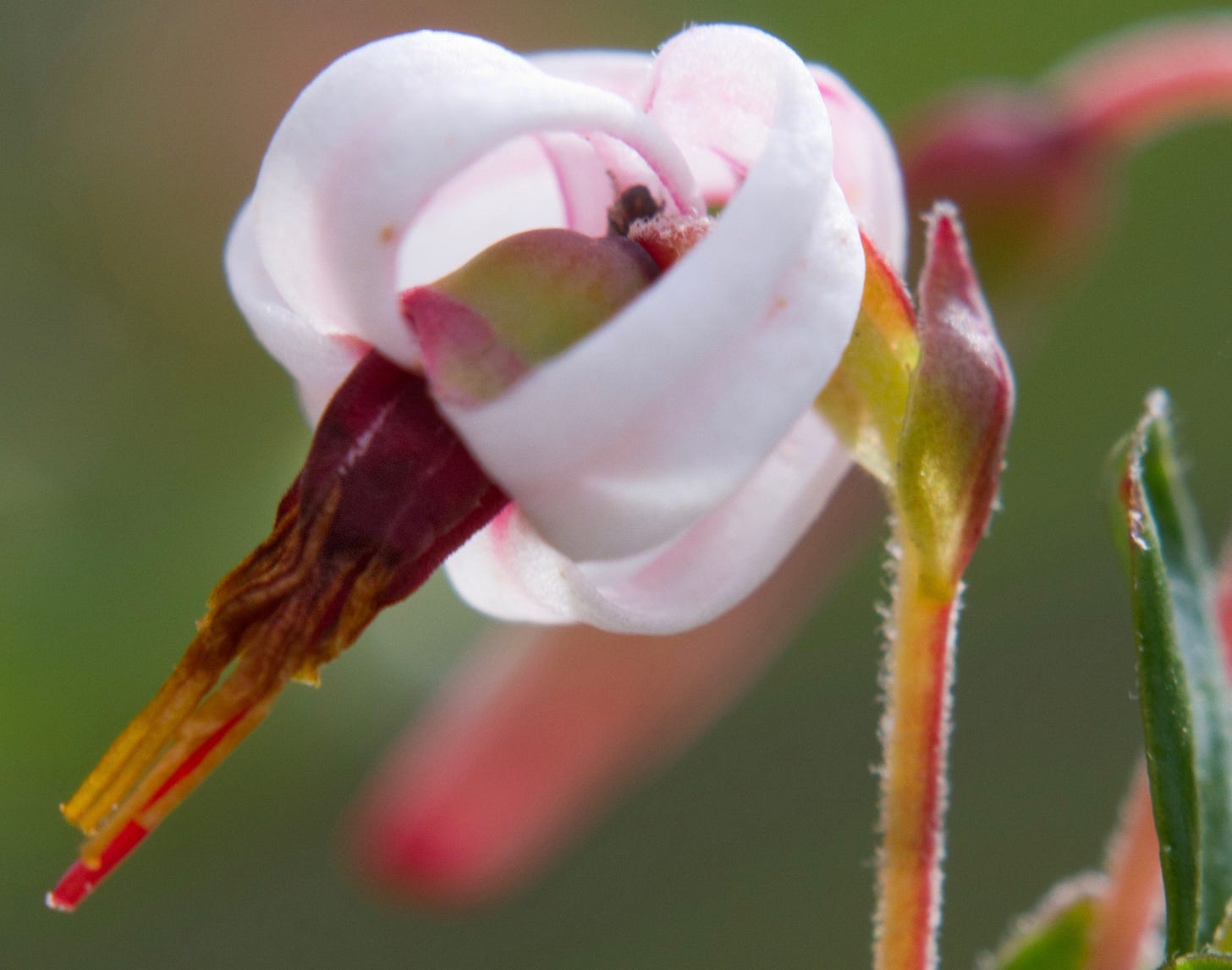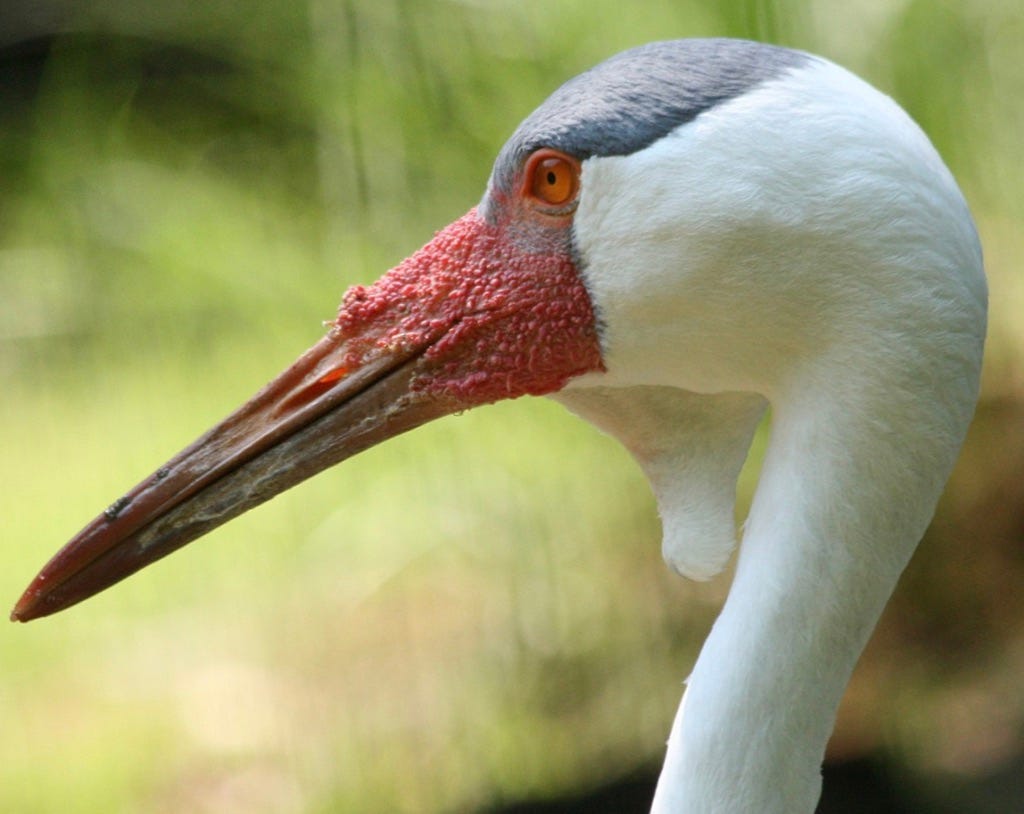Happersnapper
Concerning convex configurations and what they remind us of; implausibly patriotic dock-workers; the connection between cobwebs and cranberries, and the haunting song of the bongo.
Fieldwork
Some names recorded for fields in England, with explanations.
Eight Day Math - meadow requiring eight days to mow
Pasty Crust - field with brittle soil.
Handkerchief - small field
Seldom Seen - remote field
Australia - ditto. (Also ‘Scotland', ‘Jerusalem’ and many others)
Happersnapper - 'enclosure with a wicket gate'
The Psalms - 'land on which the psalms were recited during the bound-beating ceremony'
Rumps and Buttocks - 'alluding to convex configurations'
And a selection from my favourite category: 'Derogatory names for unprofitable or unfertile fields.'Famish Acre
No Man's Friend
Labour in Vain
Purgatory
Raw Bones
Rats' Castle
Bare Arse
Thin Porridge
Terrible
All these from the excellent dictionary 'English Field-Names', by- in a piece of extraordinarily on-the-nose nominative determinism- John Field.
Solution to: I Saw Three Ships
In the last edition’s puzzle I told you I’d seen the following three cargo ships pass by, before finding the experience repetitive, and deciding I had seen enough. If I was right, I asked you, then where might I have conjectured the next three ships to have come from?
Well, this seems in general to have been much harder than I intended it to be, although not for HBB who correctly shot back that I might think they came from Mauritius, Benin and Sweden in what felt like moments. But second place took longer to arrive, and I think really has to be shared between v.edgy and Harry; since v.edgy found a method which was far more complex than mine, and which I do not entirely understand, but may well be a viable alternative; whilst Harry described my method, but says he wouldn’t have found it without v.edgy. Standing on the shoulders of giants, and all that.
My method was just that each individual crate is cycling through a pattern of colours, hence ‘repetitive’. The ‘if I was right to think I’d seen enough’ stuff was to tell you that the pattern was fully established in three ships - for instance, the top left’s crate’s pattern of Red Green Blue is finished, and so will return to Red next. I did realise that left an ambiguity as to whether bottom left’s pattern of GBB, for instance, would continue GBBGBBGBB[…] or GGBBGGBB[…] , but I felt that the second was the more intuitive, and in any case both could be tried to see if they returned anything useful. And what’s returned if each crate is either cycling through three colours, alternating between two, or alternating between pairs of two is this:
Now, although as Hrrrmph points out, there is no reason why the arrangement of crates into a flag pattern on a ship should have anything to do with that ship’s nationality; I only said that I might have conjectured they came from Mauritius, Benin and Sweden respectively; and from my vantage point of inside my own head I can tell you that I definitely would have conjectured that. So, gold to HBB; shared silver to v.edgy and Harry. (And from that same vantage point, I can tell you that it took a while to find a sequence of three flags where no crate remained one colour throughout; but also no crate required four colours. A good long while. I do hope neither of the people who have recently set me work deadlines subscribe to this.)
Sketchbook
Commentary Box, on:
Re: Avenue 5, Toblerones asks a question I can’t answer, not having been part of the project at the earliest stage, but which contains an interesting fact I didn’t know:
How much, if at all, was the captain situation in Avenue 5 inspired by the one on RMS Lusitania (and other large ocean liners of that era), where apparently the "staff captain" interacted with passengers (as well as some other stuff such as discipline and cargo stowage) in order to leave the actual Captain free to concentrate on the running and steering/navigation of the ship herself?
Re: Nothing in particular, Caroline Hardman asks:
I recently came across the Scots word ‘birl’, meaning ‘to ply with drink’ and wondered if it was the origin of a certain Talisker-loving rugby fan’s name… or just a happy coincidence?
Excellent find, but just a happy coincidence! Mr Birling’s name actually came, by a circuitous route, from An Inspector Calls, by J.B.Priestley. Originally, Birling was just a minor character, and the episode centred around a CAA inspector who unexpectedly joined the flight, as they sometimes do. I called her Goole after Priestley’s inspector, and so called Mr Birling ‘Birling’ after the other main characters in that play. Then, by the time I discovered Birling was my new favourite character, and ditched the whole inspector plot to make room for him, the name had stuck.
Re: Spiders’ webs; in poetry, linguistics, and my car: Philippa Sidle gave me a nasty jolt with this:
Never give up on the apostrophe. Never fail to correctly punctuate the plural possessive, either.
But having looked through the post, I don’t think I did, did I? I think she must be referring to the title of the poem Spiderweb, which she’ll have to take up with Kay Ryan, though I think it’s a perfectly cromulent word.
Martin S. Taylor introduces me to an excellent unfinished nonsense poem about a spider by Mervyn Peake, which is well worth a look, as you’ll see just from the first two lines:
Little spider
Spiding sadly
And finally hrrrmph returns, with Mollie Blue Dawn in tow, to say:
I was going to be indignant and tell you that you have misused the word 'cobweb', cos cobwebs are old, disused and saggy (like in the picture), not newly spun, functioning and taut (like in your car). But Chambers Dictionary doesn't back me up on that distinction.
No, it doesn’t, does it? To be fair, I think a lot of people do use the two words that way, but there’s no need to. And I like using the word cobweb because…. well, I’ll tell you why.
The Mawkish Cobweb and the Disgruntled Cranberry.
And I’ll do so in the form of another puzzle, but don’t worry, I’ll give you the answer straight away. Actually, a three part puzzle:
What connects the following words? COBWEB, CRANBERRY, DISGRUNTLED, INEVITABLE, LUKEWARM, MAWKISH.
Which one is in a sense pre-eminent, even though personally I think it’s the worst choice?
What connects that word and the following three: CROW, GERANIUM, PEDIGREE?
So, 1: The reason I think a cobweb and a spider’s web (or indeed a spiderweb) are the same thing is because ‘cob’ is just an archaic word for a spider. But it now only survives in the word cobweb. This makes ‘cob’ an example of what is called a cranberry morpheme. A morpheme is an indivisible element of a word (indivisible in the sense of meaning, that is; not necessarily a monosyllable.) A cranberry morpheme is one like ‘cob’ or ‘cran’ which once used to be a familiar word in its own right; but which now only survives within another word. ‘Evitable’ used to mean avoidable; to ‘gruntle’ meant to grumble (with ‘dis-’ here meaning ‘very’ rather than ‘not’); ‘luke’ meant slightly or tepidly (you could be luke-hearted); and mawk meant maggot (mawkish went on a journey from maggoty to sick-making to its present meaning of sickeningly sentimental. I wonder where it will go next?)
2: And ‘cran’ meant crane. Which is why I find ‘cranberry’ a slightly unsatisfying choice for the name of the morpheme, because sure, cran doesn’t mean crane any more… but it very nearly does. The apple has not fallen far from the tree, or the cranberry from the bush. Whereas ‘raspberry’ was right there…
What I do find satisfying, however, is why cranberries were called crane-berries in the first place:
I mean… fair enough.
And now, as Thrifty Squadron remember a pressing engagement that they just can’t get out of, and hurry off, regretted by all; I will explain to Spendy Squadron what cranberries have to do with crows, geraniums and pedigrees; and then modestly present them with an important new poem I’ve written.

